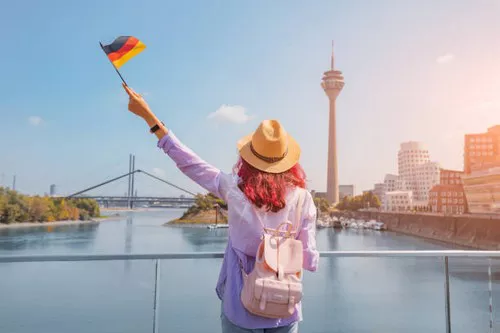Tourism-reliant Thailand is lined up hundreds of cultural and sporting events and may waive visa requirements for travellers from more European countries as it works to get holidaymakers to stay longer and spend more.
The Southeast Asian nation – popular for its vibrant nightlife, beaches and national parks – is discussing a plan to allow tourists from some European nationalities to stay for up to 90 days, Prommin Lertsuridej, a top adviser to Thai Prime Minister Srettha Thavisin, said last week.
Some 3,000 events such as music concerts, marathons and other cultural festivals will also be organised by next year to attract tourists, he said.
Srettha, who became prime minister in August, has identified tourism as a “quick win” to accelerate Thailand’s economic growth.
His government has temporarily waived visa requirements for travellers from Russia, China, Kazakhstan, India and Taiwan and ordered airlines to add more routes while streamlining airport operations to cut waiting times for visitors.
It also plans to allow nightlife venues in some areas of Bangkok, Phuket, Chiang Mai and Chonburi to operate until 4am from next month.
While Thailand has rolled back most of the pandemic-era restrictions on visitors, average spending per traveller has lagged behind pre-Obid levels and missed official estimates.
In 2019, the country saw a record number of foreign arrivals – nearly 40 million – generating 1.91 trillion baht (US$54.5 billion) in revenue. That year, each tourist spent an average of 47,895 baht per trip, which lasted an average of nine days, according to official data.
As of 12 November this year, Thailand has welcomed 23.2 million foreign tourists and received 981.7 billion baht in foreign tourist receipts. This means it is currently about 12 per cent below the 2019 benchmark for per-trip spending.
The Tourism Authority of Thailand has set a goal of returning foreign tourist receipts to pre-covid levels, targeting at least 2 trillion baht by 2024.
Srettha last week announced the Winter Festival Celebrations, which will include the Loi Krathong Festival, Bangkok Marathon and New Year. The event is designed to showcase Thailand’s culture and attract tourists during the high season between November and January.
“We will develop more attractions and promotions to encourage tourists to stay longer,” said Prommin, who is secretary-general to the prime minister. “Longer stays, more events to attract them, more fun in the nightlife scene. That’s how we plan to get tourists to spend more”.



















